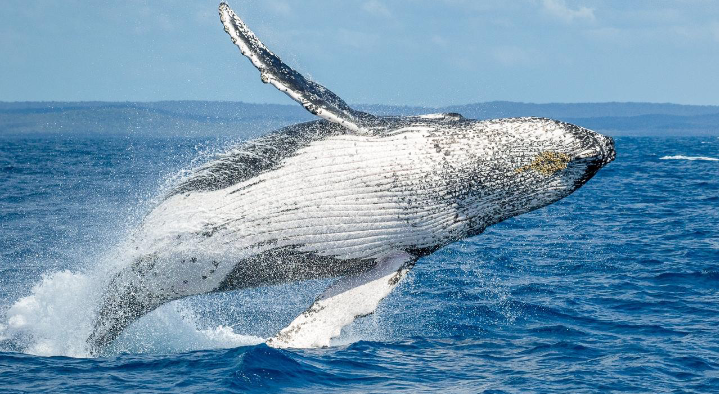HEALTH AND PRODUCTIVE OCEAN IS OUR COLLECTIVE RESPONSIBILITY – WORLD OCEAN DAY 2022
Foreign Desk
This year World Ocean Day is being celebrated under the theme “Revitalisation: Collective Action for the Ocean”.
World Ocean Day is celebrated annually and has a history spanning over two decades. The United Nations’ World Commission on Environment and Development commission in its seminal Our Common Future report highlighted many of the environmental problems plaguing the planet. The report noted that while the oceans were being adversely affected by climate change just as much if not more than farmlands, forests and other sectors, it lacked a strong voice.
Nearly half a decade later, the idea of World Ocean Day was first proposed by Canada’s International Centre for Ocean Development (ICOD) and the Ocean Institute of Canada (OIC) at the Earth Summit – UN Conference on Environment and Development (UNCED) in Rio de Janeiro, Brazil in 1992. But only after global collaboration between The Ocean Project and the World Ocean Network, and various other scientific institutes and organisations did the UN official recognise June 8 as World Ocean Day in 2008.
World Ocean Day seeks to promote knowledge about the delicate systems that govern the world’s oceanic system and how they’re at increasing risk from climate change. From rising pollution, acidification of ocean water, rising average temperatures, to a reduction in ocean biodiversity. Through spreading awareness, World Ocean Day hopes to protect the Earth’s major water bodies.
Secretary-General António Guterres’ message for 2022
Last month, the World Meteorological Organization revealed that four key climate indicators broke new records in 2021: sea level rise; ocean heat; ocean acidification; and greenhouse gas concentrations. It is clear that the triple crises of climate change, biodiversity loss and pollution are threatening the health of our oceans, on which we all ultimately depend.
The ocean produces more than 50 per cent of the planet’s oxygen and is the main source of sustenance for more than a billion people. Ocean-based industries employ some 40 million people. Yet ocean resources and biodiversity are being undermined by human activities. More than one third of the world’s fish stocks are harvested at biologically unsustainable levels. A significant proportion of coral reefs have been destroyed. Plastic pollution has reached the remotest islands and deepest ocean trenches. Coastal dead zones from land-based pollution are growing.
It is time to realize that, to achieve the Sustainable Development Goals and the objectives of the Paris Agreement on climate change, we urgently need collective action to revitalize the ocean. That means finding a new balance in our relationship with the marine environment. It means working together with nature, not against it, and building inclusive and diverse partnerships across regions, sectors and communities to collaborate creatively on ocean solutions.
Momentum is growing. Last November, the Glasgow climate change conference recognized the role of marine ecosystems in achieving the world’s climate goals. In March, countries agreed to work together on a new treaty to end plastic pollution, which is threatening the marine environment. Later this month, the United Nations Ocean Conference in Lisbon will focus on scaling up action based on science and innovation for the achievement of Sustainable Development Goal 14. And discussions will continue on a new agreement on the conservation and sustainable use of marine biological diversity in areas beyond national jurisdiction.
Ensuring a healthy and productive ocean is our collective responsibility, which we can only fulfill by working together. On this World Oceans Day, I urge all those with a stake in ocean health to come together to revitalize our seas and oceans.
First published by Kirtan Barti, Editor and Publisher at Diplomatic Society




